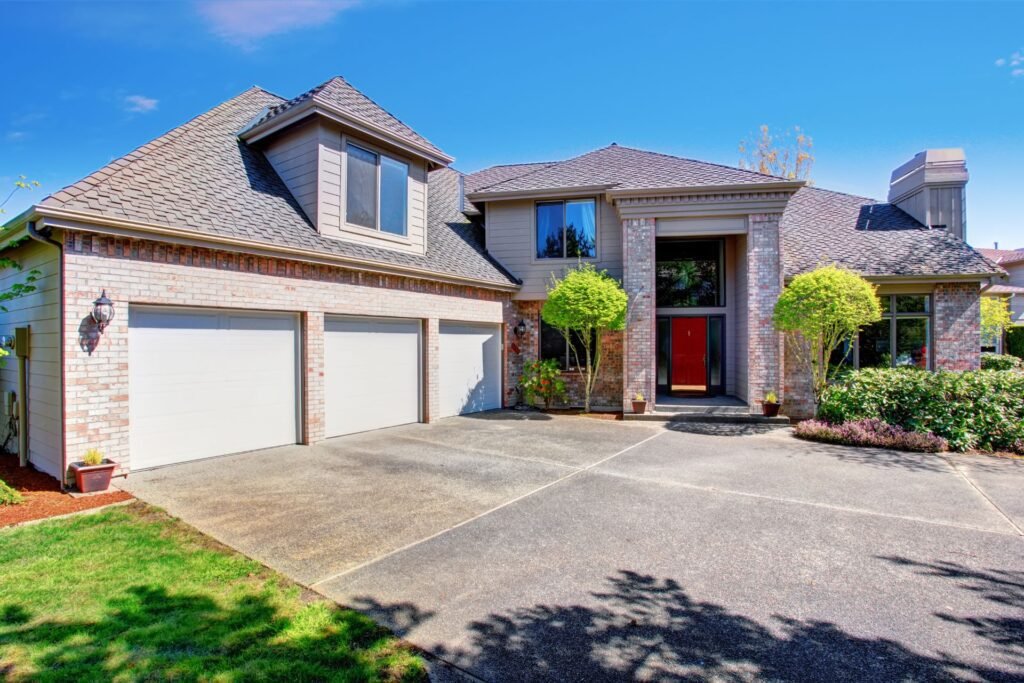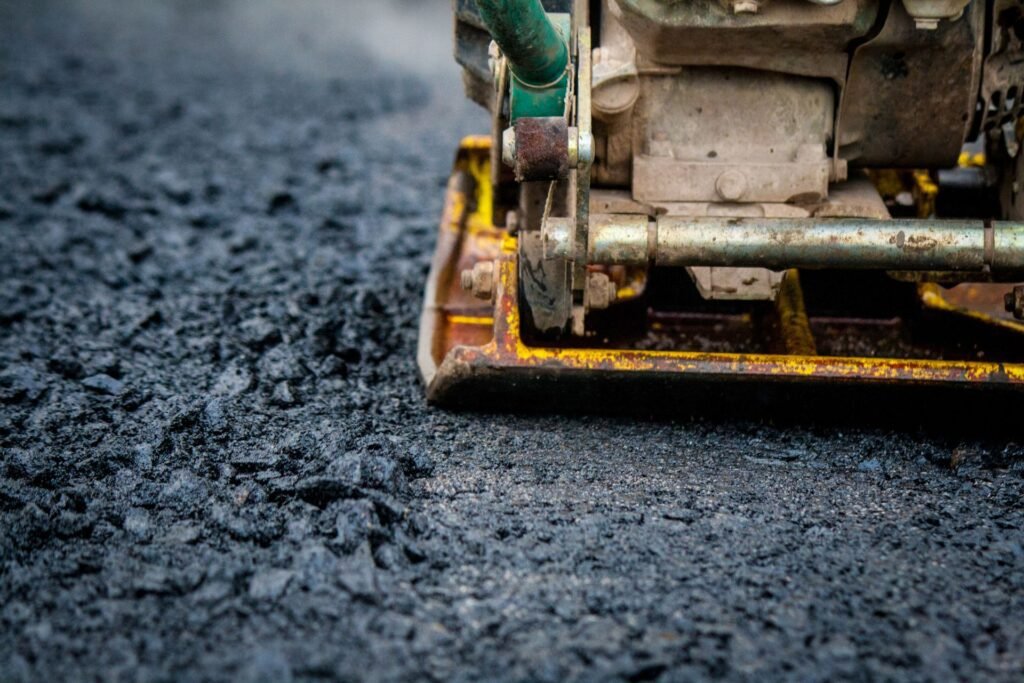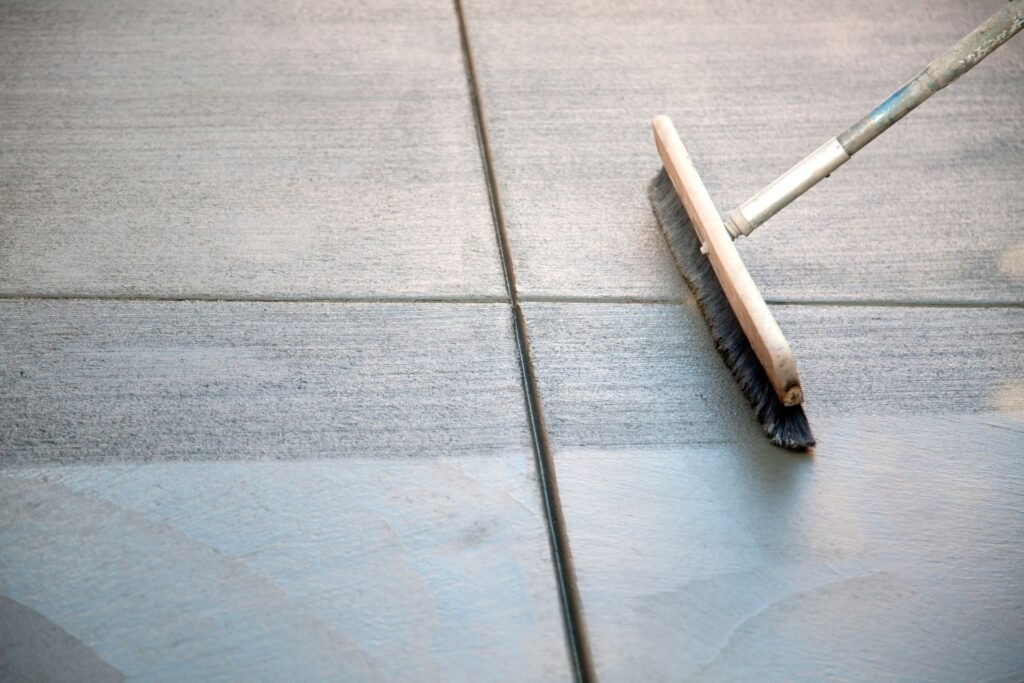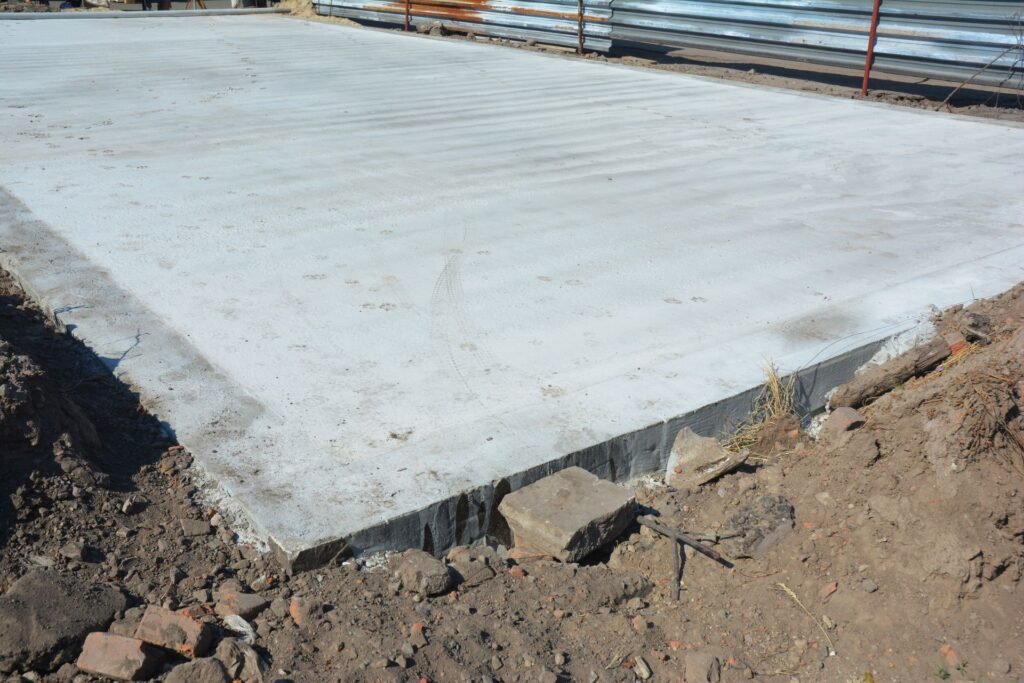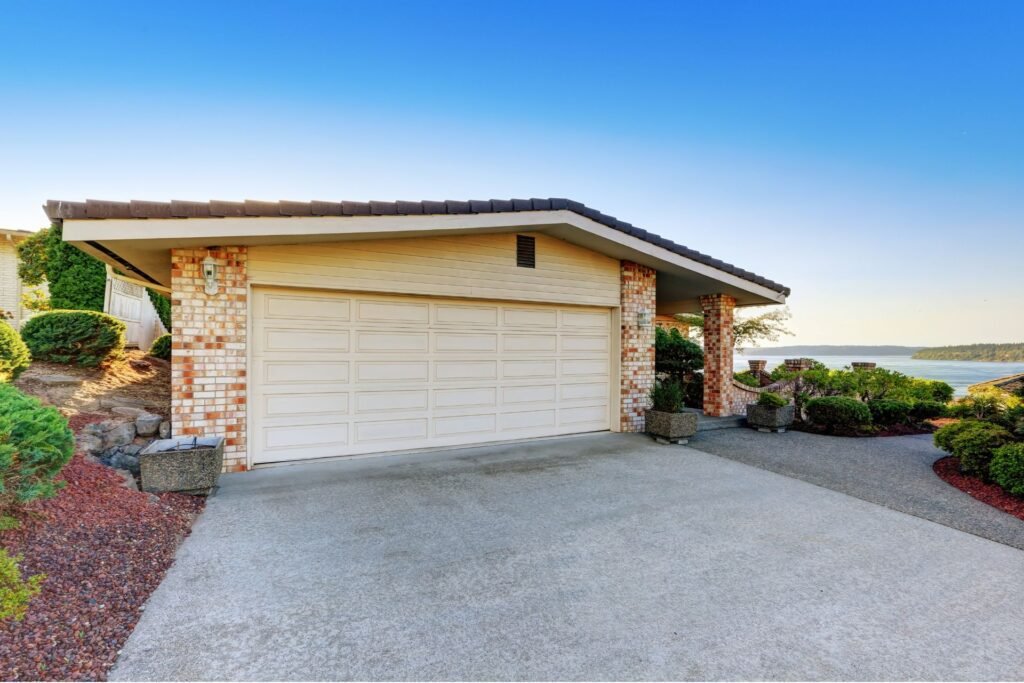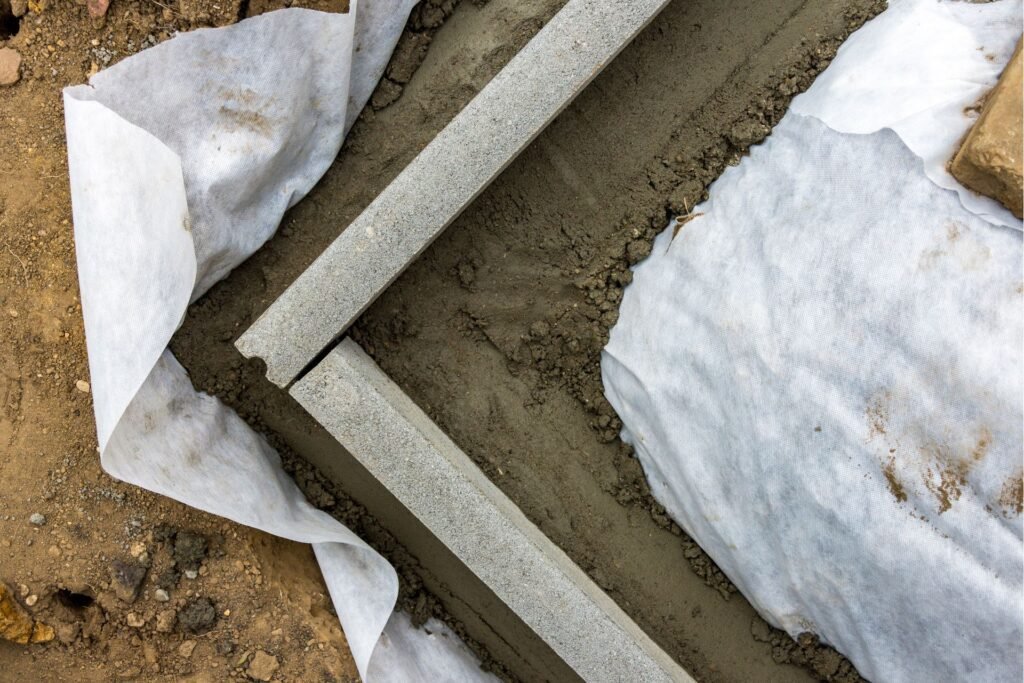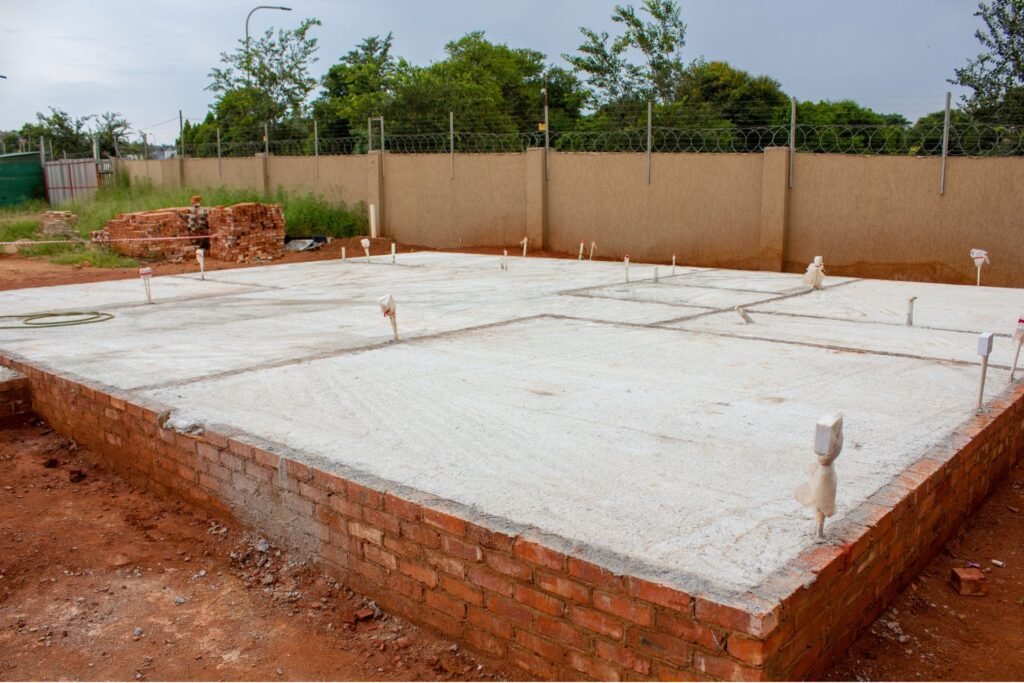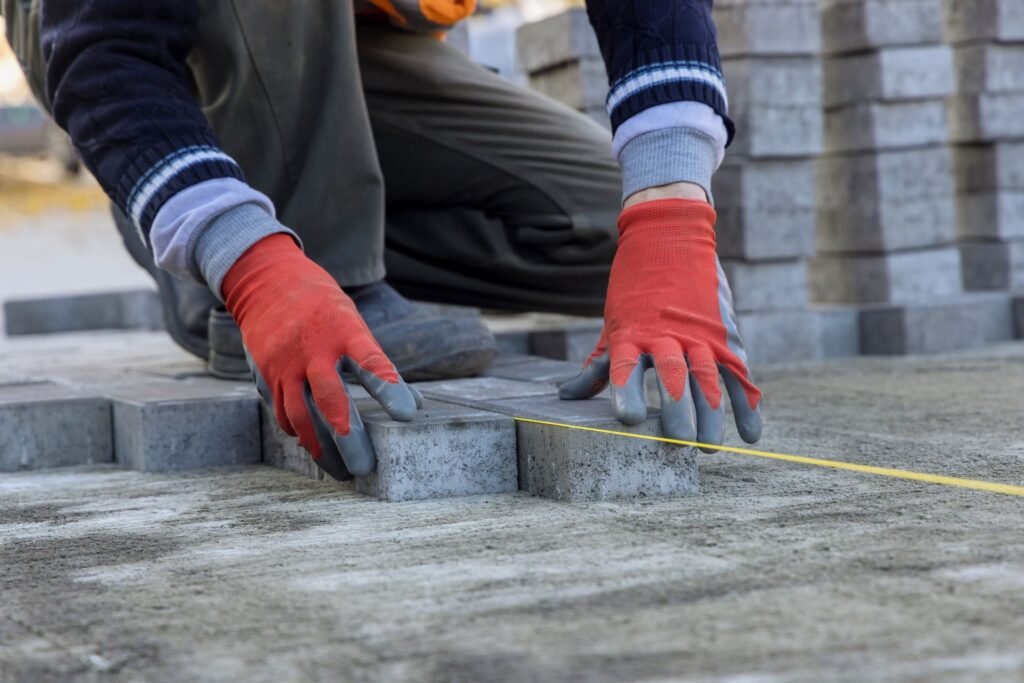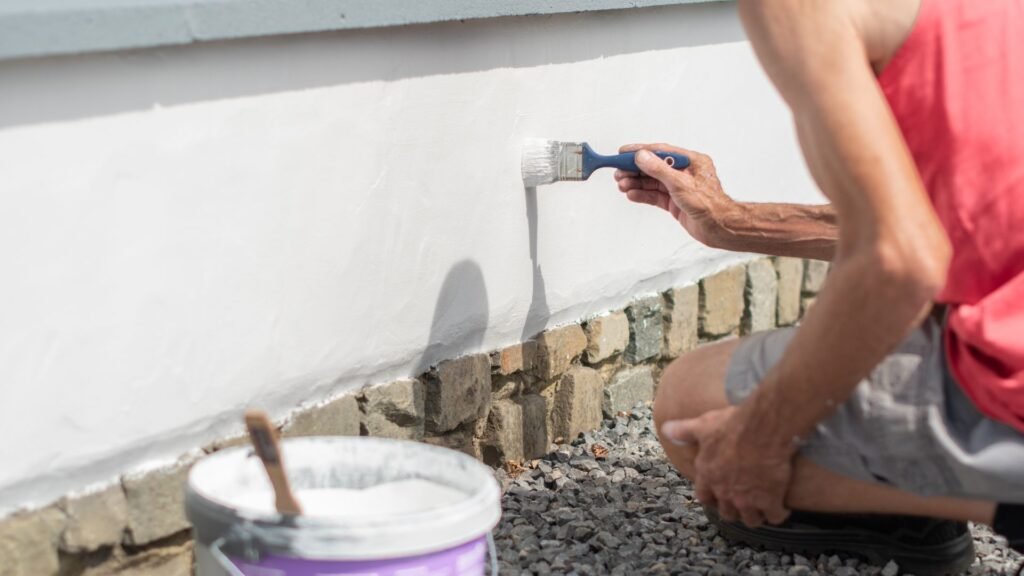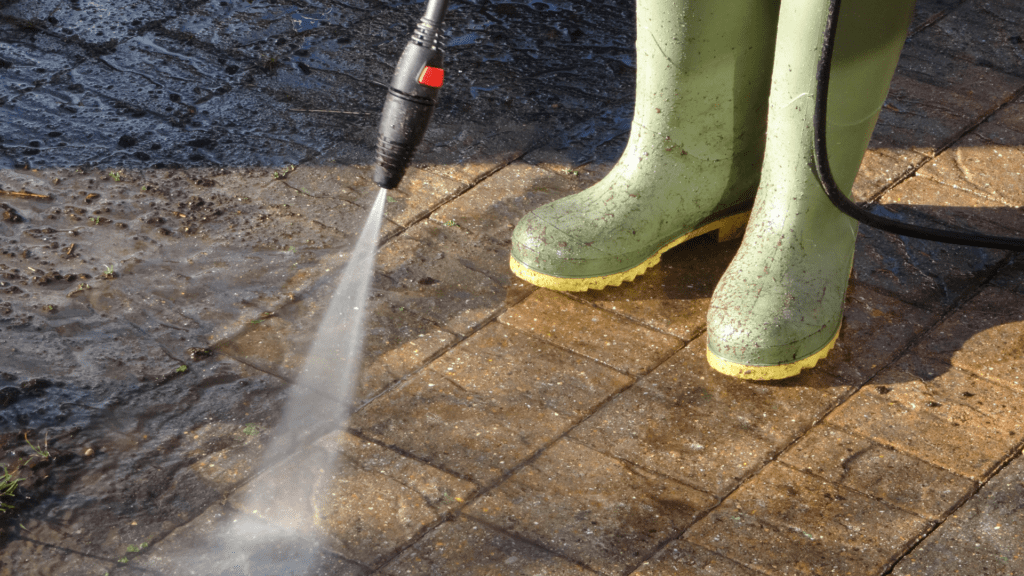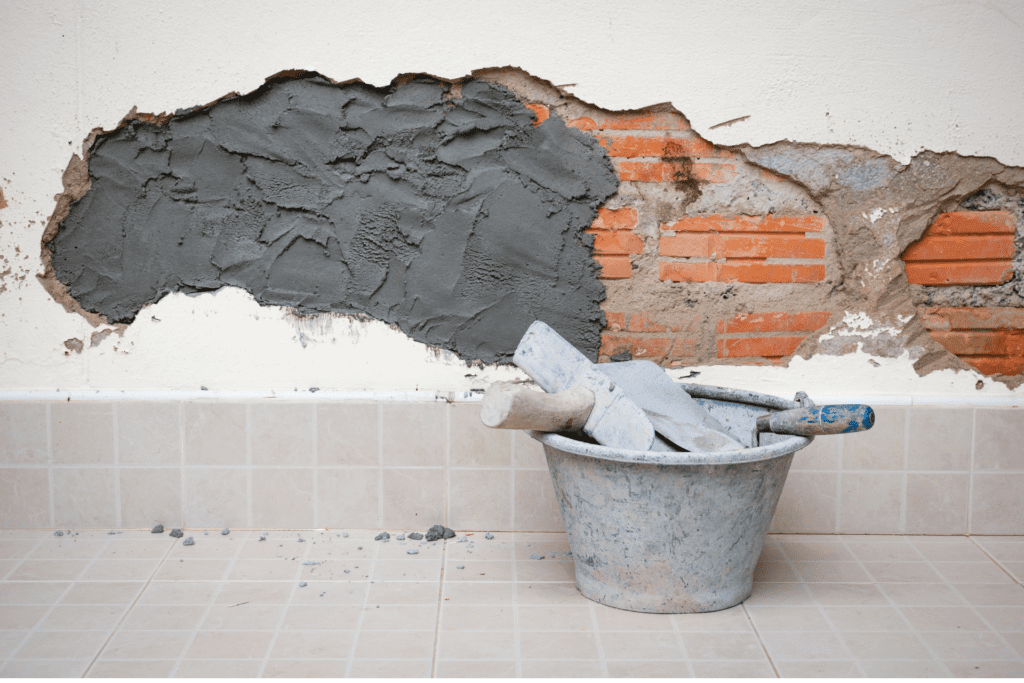Welcome to your comprehensive guide on understanding the costs of installing a concrete driveway in New Zealand. Whether you’re looking to enhance your home’s curb appeal, replace an aging driveway, or simply want a durable and low-maintenance solution, knowing what to expect in terms of expenses is crucial. In this post, we’ll break down everything you need to know about the factors that influence concrete driveway costs, from materials and labor to site preparation and design choices, helping you make informed decisions and ensuring you get the best value for your investment.
On average, the cost of a concrete driveway in New Zealand ranges from $75 to $150 per square meter, influenced by factors such as the size of the driveway, the thickness of the concrete, design complexity, and site preparation requirements.
Table of Contents
Understanding Concrete Driveway Costs
When planning to install a concrete driveway, it’s essential to have a clear understanding of the various factors that influence the overall cost. This section breaks down what you can expect to pay and the factors that will impact the final price, particularly in New Zealand.
What Does the Cost Cover?
When budgeting for a concrete driveway, it’s crucial to understand what the quoted price typically includes. Here’s a breakdown of the main components:
- Materials: The cost of concrete itself is a significant part of the overall price. This includes the concrete mix, reinforcement materials (like steel mesh or rebar), and any additional elements such as color additives or sealants.
- Labor: Skilled labor is required to properly mix, pour, and finish the concrete. Labor costs can vary based on the complexity of the project and the experience of the crew.
- Excavation: Before laying down the concrete, the area needs to be properly prepared. This often involves excavating the existing ground, removing old driveways, and leveling the area.
- Permits: Depending on your location, you may need to obtain permits before starting work. This can add to the overall cost.
- Finishing Touches: Costs might also include curing the concrete, adding a protective sealant, or even applying decorative finishes.
Average Cost of Concrete Driveways in NZ
The cost of a concrete driveway in New Zealand can vary depending on several factors, but on average, you can expect to pay between $65 and $120 per square meter. This range can fluctuate based on the specific materials used, the complexity of the job, and your location within the country.
When compared to other materials like asphalt or gravel, concrete might initially seem more expensive. However, its durability and low maintenance requirements make it a cost-effective choice in the long run. Asphalt driveways typically cost less upfront but require more frequent maintenance, while gravel is the cheapest but lacks the longevity and aesthetic appeal of concrete.
Factors Influencing the Cost
Several key factors can influence the total cost of your concrete driveway:
Size of the Driveway: The larger the area, the more materials and labor are required, which directly impacts the cost. Larger driveways also often need more extensive site preparation, further increasing the expense.
- Thickness of the Concrete: The thickness of the concrete slab plays a crucial role in both durability and cost. Thicker slabs are more expensive because they require more material, but they also provide greater strength and longevity, which is particularly important in areas with heavy vehicles or harsh weather conditions.
- Design Complexity: A basic concrete driveway with a standard finish will cost less than one with custom designs. If you opt for patterns, colors, or textured finishes, expect the price to rise. These custom features require more labor and sometimes special materials, increasing the overall cost.
- Site Preparation: The condition of the land where the driveway will be installed can significantly impact costs. If the site requires extensive leveling, removal of existing driveways, or significant excavation, these tasks will add to the overall expense. Difficult terrain or poor soil conditions can also increase the cost of site preparation.
- Location in NZ: Costs can vary across different regions of New Zealand. Urban areas like Auckland or Wellington may have higher labor rates and material costs compared to more rural areas. Additionally, the availability of materials can affect pricing; regions where materials must be transported over long distances might see higher costs.
Understanding these factors can help you better plan and budget for your new concrete driveway, ensuring you get the best value for your investment.

Detailed Breakdown Of Costs
When planning a concrete driveway, it’s crucial to understand the detailed breakdown of costs involved. Knowing where your money is going ensures that you make informed decisions that align with your budget while achieving the quality and durability you desire. Below, we provide an in-depth explanation of the various cost components that contribute to the overall expense of your concrete driveway project.
Material Costs
Concrete
The type of concrete you choose significantly impacts your overall costs. Standard concrete is the most common and cost-effective option, offering durability and a clean finish. However, if you’re looking for something more aesthetically pleasing, exposed aggregate concrete might be worth considering. This type involves additional materials and labor to achieve a decorative, textured surface, typically making it more expensive. Understanding the cost differences between these concrete types will help you budget effectively and choose the right option for your project’s needs.
Reinforcement Materials
Reinforcement is essential in ensuring your driveway’s structural integrity, particularly in areas prone to heavy loads or extreme weather conditions. Steel reinforcement bars (rebar) or wire mesh are commonly used to strengthen the concrete. The cost of these materials can vary depending on the size of your driveway and the type of reinforcement required. While it may add to your initial costs, investing in proper reinforcement can prevent costly repairs in the future by reducing the risk of cracks and other damage.
Labor Costs
Labor is another significant factor in the cost of installing a concrete driveway. The process typically involves site preparation, formwork, pouring, and finishing. Each of these stages requires skilled labor, which can add up quickly. Labor costs can vary based on geographic location; for instance, urban areas with a higher cost of living generally have higher labor rates compared to rural areas. Additionally, the complexity of the project, such as intricate designs or challenging terrain, can also affect the amount of labor required and, consequently, the cost.
Additional Costs
Permits and Compliance
Before you start your driveway project, you may need to obtain various permits, depending on local regulations. Permit costs can vary widely based on your location and the scope of your project. Ensuring compliance with local building codes is essential to avoid fines or legal issues down the line, making this a non-negotiable part of your budget.
Drainage Considerations
Proper drainage is crucial in preventing water accumulation, which can damage your driveway and even your home’s foundation. The cost of incorporating adequate drainage systems, such as installing a slope or adding drainage channels, should be factored into your budget. While this might seem like an additional expense, it’s a necessary investment to ensure the longevity and durability of your driveway.
Finishing Touches
Finally, the finishing touches on your driveway, such as sealing, curing, or adding decorative treatments, are essential for both aesthetic appeal and functionality. Sealing the driveway helps protect it from the elements, while proper curing ensures the concrete reaches its full strength. Decorative finishes, such as staining or stamping, add to the visual appeal but also increase costs. These finishing touches are the final steps in your driveway installation and can significantly impact the overall cost, depending on the complexity and materials used.
Understanding these detailed cost components allows you to plan effectively, ensuring your concrete driveway is not only beautiful but also durable and within budget. Whether you’re opting for standard concrete or something more decorative, being informed about material, labor, and additional costs will help you achieve a successful project outcome.

Budgeting Tips For Your Concrete Driveway
When planning a concrete driveway project, staying within your budget while ensuring quality can be challenging. However, with strategic planning and smart decisions, you can achieve the desired results without breaking the bank. Here are some essential budgeting tips to help you navigate the process effectively:
Get Multiple Quotes
One of the most effective ways to manage your budget is by getting multiple quotes from different contractors. Don’t just settle for the first estimate you receive. Instead, take the time to research and reach out to at least three or four reputable contractors in your area. By doing this, you can compare prices, services, and timelines. This approach not only helps you find the best deal but also gives you a clearer understanding of the market rate, ensuring you’re not overpaying. Additionally, a competitive quote might encourage contractors to offer better terms or discounts, further helping you stay within budget.
Timing Your Project
Timing can play a significant role in the cost of your concrete driveway project. Consider scheduling your project during the off-peak season, typically in late fall or early spring. During these times, contractors are often less busy and may offer lower rates to secure work. By avoiding peak construction seasons, you can take advantage of these lower prices, reducing your overall costs. Moreover, contractors might be able to dedicate more time and attention to your project when they are not juggling multiple jobs, potentially leading to better results at a lower price.
Opt for a Basic Design
While intricate patterns and decorative finishes can add visual appeal to your driveway, they can also significantly increase costs. If your priority is staying within budget, opting for a basic design is a wise choice. A simple, well-executed concrete driveway can still enhance your property’s curb appeal without the added expense of complex designs. Keep in mind that the primary function of your driveway is utility, and sometimes, simplicity is not only cost-effective but also elegant. Focus on quality materials and workmanship rather than elaborate aesthetics to ensure longevity without overspending.
Consider Long-Term Value
While it might be tempting to cut costs by opting for cheaper materials or less experienced contractors, this approach can be costly in the long run. Investing in higher-quality materials and skilled labor may increase your initial expenditure but can save you money over time. A well-constructed driveway with durable materials will require less maintenance and repairs, extending its lifespan and providing better value. Additionally, a sturdy, long-lasting driveway can increase your property’s value, making it a worthwhile investment. Balancing upfront costs with long-term benefits ensures you get the best return on your investment.
By following these budgeting tips, you can effectively manage your concrete driveway project without compromising on quality. Taking the time to plan, compare, and prioritize will help you achieve a durable and aesthetically pleasing driveway that fits your budget.

Pros And Cons Of Concrete Driveways
Concrete driveways are a popular choice for many homeowners, offering a range of benefits that can significantly enhance the curb appeal and value of a property. However, like any material, concrete has its pros and cons that should be carefully considered before making a decision.
Advantages
Durability
One of the most significant advantages of a concrete driveway is its durability. Concrete is known for its long-lasting nature, often outlasting other driveway materials by several decades with minimal maintenance. Unlike gravel or asphalt, which may require frequent repairs or resurfacing, a well-installed concrete driveway can withstand the elements—such as heavy rain, snow, and intense sunlight—without deteriorating. This durability translates to lower maintenance costs over time, making it a cost-effective option in the long run.
Versatility in Design
Another appealing feature of concrete driveways is the versatility they offer in design. Concrete doesn’t have to be dull or grey; it can be customized to match your aesthetic preferences. Homeowners can choose from various finishes, such as stamped concrete, which can mimic the look of more expensive materials like stone or brick. Additionally, concrete can be tinted in different colors to complement the exterior of your home, allowing for a personalized touch that enhances overall curb appeal. Whether you prefer a sleek, modern look or a rustic, textured finish, concrete provides a wide array of design options.
Value Addition
Investing in a concrete driveway can also be a smart financial move, as it can increase the resale value of your home. A well-maintained, attractive driveway creates a positive first impression, boosting curb appeal and potentially leading to a higher sale price. Prospective buyers often appreciate the low maintenance and durability of concrete, making your property more desirable in the real estate market. In this sense, a concrete driveway is not just an aesthetic choice but a long-term investment that can pay off when it’s time to sell.
Disadvantages
Higher Initial Cost
While concrete driveways offer long-term benefits, they do come with a higher initial cost compared to other materials like gravel or asphalt. The cost of materials, labor, and any customizations can add up, making it a more expensive option upfront. However, this cost can be justified by the durability and longevity of concrete, which often requires less frequent maintenance and replacement. For homeowners on a tight budget, the higher initial investment might be a drawback, but it’s important to weigh this against the long-term savings and benefits.
Potential for Cracking
One of the most common concerns with concrete driveways is the potential for cracking. Over time, factors such as temperature fluctuations, heavy loads, and ground movement can cause cracks to form in the concrete. While minor cracks are often just cosmetic, larger cracks can affect the structural integrity of the driveway. To minimize the risk of cracking, proper installation is crucial, including the use of control joints to allow for natural expansion and contraction. Additionally, sealing the driveway can protect it from moisture penetration, reducing the likelihood of cracks. If cracks do occur, prompt repair can prevent them from worsening.
Environmental Impact
Concrete production has a significant environmental impact, primarily due to the high carbon footprint associated with cement manufacturing. The process of producing cement—the key ingredient in concrete—releases a large amount of carbon dioxide into the atmosphere, contributing to global warming. Moreover, the extraction of raw materials like limestone and clay can lead to habitat destruction and other environmental issues. For environmentally conscious homeowners, this might be a concern when choosing a driveway material. However, there are ways to mitigate this impact, such as using eco-friendly concrete mixes that incorporate recycled materials or opting for a permeable concrete design that reduces runoff and promotes groundwater recharge.
In conclusion, concrete driveways offer a mix of durability, design versatility, and potential value addition, making them a strong contender for many homeowners. However, the higher initial cost, potential for cracking, and environmental considerations are important factors to weigh before making a decision. By understanding these pros and cons, you can make an informed choice that aligns with your needs, budget, and values.

Case Studies: Real Examples Of Concrete Driveway Costs In NZ
When planning to install a concrete driveway, understanding the potential costs involved is essential. To give you a clearer picture, let’s explore three real-life examples from different regions of New Zealand. These case studies will highlight the variety of factors that influence the final price tag, from location to the complexity of the project.
Case Study 1: Small Urban Driveway in Auckland
For our first case study, we look at a typical small urban driveway in Auckland. This project involved a straightforward installation, perfect for homeowners in urban areas looking for a cost-effective solution.
Project Overview
- Location: Auckland, Urban Residential Area
- Size: 40 square meters
- Driveway Type: Basic concrete driveway with a smooth finish
Costs Breakdown
1. Site Preparation
- Excavation and Groundwork: Before laying the concrete, the site required minor excavation to level the ground. This involved removing the existing surface and preparing a stable base.
- Cost: Approximately $800 – $1,000
2. Materials
- Concrete Supply: For this project, the homeowner chose a standard 20 MPa concrete mix, a common choice for residential driveways.
- Cost: Around $1,200 – $1,500
3. Labor
- Installation and Finishing: The labor cost covered the laying of the concrete, smoothing the surface, and ensuring proper curing.
- Cost: Between $1,000 – $1,200
Total Estimated Cost:
Overall Cost: $3,000 – $3,700
This Auckland driveway project exemplifies how straightforward installations in urban areas can be completed at a relatively low cost, making it an attractive option for homeowners looking to enhance their property’s curb appeal without breaking the bank.
Case Study 2: Large Rural Driveway in Canterbury
Next, we examine a more complex and larger project in Canterbury. This driveway posed several challenges, including significant earthmoving and custom design elements.
Project Overview
- Location: Canterbury, Rural Property
- Size: 150 square meters
- Driveway Type: Reinforced concrete with custom edging and drainage
Costs Breakdown
1. Site Preparation
- Excavation and Earthmoving: Due to the uneven terrain, extensive excavation was necessary. The team also had to install proper drainage to prevent future water damage.
- Cost: Approximately $5,000 – $6,000
2. Materials
- Concrete and Reinforcement: The driveway required a stronger 25 MPa concrete mix, reinforced with steel mesh to handle the weight of heavy vehicles.
- Cost: Around $4,500 – $5,500
3. Labor
- Installation: The complexity of this project increased labor costs. The team needed to ensure precise leveling and the installation of custom edging along the driveway.
- Cost: Between $4,000 – $4,500
Total Estimated Cost
Overall Cost: $13,500 – $16,000
This rural Canterbury driveway project illustrates how larger, more complex installations can significantly drive up costs, especially when earthmoving and custom features are involved. Homeowners in rural areas should be prepared for these additional expenses.
Case Study 3: Decorative Driveway in Wellington
Our final case study is from Wellington, where a homeowner opted for a decorative driveway with a high-end finish. This example showcases how aesthetic choices can impact the overall cost.
Project Overview
- Location: Wellington, Suburban Area
- Size: 60 square meters
- Driveway Type: Exposed aggregate finish with stamped concrete accents
Costs Breakdown
1. Site Preparation
- Groundwork and Base Installation: Similar to the other projects, this driveway required standard site preparation. However, additional work was needed to ensure the ground was perfectly level for the decorative finishes.
- Cost: Approximately $1,200 – $1,500
2. Materials
- High-End Concrete Mix: The homeowner chose a premium concrete mix, which included decorative stones for the exposed aggregate finish.
- Cost: Around $2,000 – $2,500
- Stamping and Coloring: Additional materials were required for the stamped concrete accents, including dyes and molds.
- Cost: $1,000 – $1,500
3. Labor
- Decorative Finishing: Skilled labor was necessary to achieve the desired exposed aggregate finish and to carefully apply the stamped concrete accents.
- Cost: Between $2,500 – $3,000
Total Estimated Cost
Overall Cost: $6,700 – $8,500
This Wellington driveway project highlights the added costs associated with decorative finishes. Homeowners seeking a visually striking driveway should factor in these additional expenses when budgeting.
These case studies from Auckland, Canterbury, and Wellington provide valuable insights into the varying costs of concrete driveway installations across New Zealand. Whether you’re planning a simple urban driveway, a complex rural project, or a decorative masterpiece, understanding these factors will help you budget effectively and make informed decisions.

Choosing The Right Contractor
When embarking on a concrete driveway project, selecting the right contractor is one of the most crucial steps. A well-constructed driveway can enhance your home’s curb appeal and durability, while a poorly done job can lead to costly repairs down the line. Here’s how to ensure you choose the best contractor for your needs.
What to Look for in a Contractor
Finding the right contractor involves more than just comparing prices. Here are the key factors to consider:
Experience and Specialization
Hiring a contractor who specializes in concrete driveways is essential. Experience matters, especially with a project that will be a permanent part of your property. A contractor who has focused on concrete driveways will be familiar with the specific challenges and best practices associated with this type of work. They’ll know the ideal materials, proper installation techniques, and how to handle unexpected issues that might arise. When evaluating potential contractors, ask about their previous experience with similar projects to gauge their expertise.
Reputation and Reviews
A contractor’s reputation is a strong indicator of the quality of work you can expect. Start by checking online reviews and testimonials from previous clients. Websites like Yelp, Google Reviews, and the Better Business Bureau are valuable resources for gaining insight into a contractor’s reliability and workmanship. Positive feedback on these platforms often reflects a contractor’s commitment to quality and customer satisfaction. Additionally, ask the contractor for references and take the time to contact a few past clients to discuss their experiences. A good contractor will have a portfolio of past projects and be happy to share success stories.
Warranties and Guarantees
Reputable contractors stand by their work, which is why you should expect them to offer warranties and guarantees. These assurances cover the quality of materials used and the craftsmanship involved. A warranty is a sign that the contractor is confident in their work and is willing to address any issues that may arise after the project is completed. Before hiring, make sure to discuss the specifics of any warranties offered, including what is covered, the duration of the warranty, and the process for making a claim if needed. Understanding these details upfront can save you from unexpected expenses later on.
Questions to Ask Potential Contractors
Before making your final decision, it’s important to ask the right questions to any potential contractor. These inquiries can help you determine whether a contractor is the right fit for your project:
- Can you provide examples of previous driveway projects you have completed? This will give you a sense of their work quality and style.
- What is your expected timeline for this project? Understanding the timeframe can help you plan accordingly and ensure the project fits within your schedule.
- Are there any potential additional costs I should be aware of? Transparency about costs upfront helps prevent unpleasant surprises later in the project.
By asking these questions, you ensure clear communication and set expectations for both parties.
Red Flags to Avoid
While there are many excellent contractors out there, it’s important to be aware of warning signs that could indicate an unreliable choice:
- Unusually Low Quotes: If a contractor’s bid is significantly lower than others, it might be too good to be true. Low quotes can often mean the contractor is cutting corners, using subpar materials, or not fully understanding the scope of the project.
- Pressure to Make Quick Decisions: Beware of contractors who push you to make a decision immediately. A professional will understand the importance of making an informed choice and will allow you the time you need to evaluate your options.
Taking the time to carefully choose the right contractor will pay off in the long run. A well-installed concrete driveway not only improves your property’s functionality but also enhances its aesthetic appeal and value. By following these guidelines, you can feel confident that you’re making a decision that will benefit your home for years to come.

Maintenance Tips To Extend The Life Of Your Concrete Driveway
Concrete driveways are a significant investment, offering durability and a clean, appealing look for your home. However, like any other surface exposed to the elements, your concrete driveway requires regular maintenance to keep it in top condition and extend its lifespan. Here are some practical tips to help you maintain your driveway and ensure it serves you well for years to come.
Routine Cleaning
Regular cleaning is essential for maintaining the appearance and integrity of your concrete driveway. Over time, dirt, grime, and various stains from oil spills, tire marks, and organic debris can accumulate on the surface. If left unattended, these can lead to permanent discoloration and weaken the surface. To prevent this, it’s advisable to clean your driveway every few months.
A simple mixture of water and mild detergent is usually sufficient for most routine cleanings. For tougher stains, consider using a pressure washer, but be sure to adjust the pressure to avoid damaging the concrete. Regular cleaning not only keeps your driveway looking pristine but also prevents the buildup of harmful substances that could degrade the concrete over time.
Sealing the Surface
Sealing your concrete driveway is one of the most effective ways to protect it from damage. Concrete is a porous material, which means it can absorb water, oils, and other liquids that can cause staining or even structural damage. Applying a high-quality sealant creates a protective barrier on the surface, preventing moisture from seeping in and reducing the risk of cracks caused by freeze-thaw cycles.
In addition to water protection, a good sealant also shields the concrete from UV rays, which can cause the surface to fade and deteriorate over time. For optimal protection, it’s recommended to reseal your driveway every 2-3 years. This simple step can significantly extend the life of your driveway, keeping it looking fresh and new for longer.
Crack Repair
No matter how well you maintain your driveway, small cracks may eventually appear due to natural wear and tear or the shifting of the ground beneath. It’s crucial to address these cracks as soon as they appear, as they can quickly expand into larger problems if ignored.
Small cracks can often be repaired with a concrete filler or patching compound, which you can easily apply yourself. For larger cracks, or if you’re unsure how to proceed, it might be wise to consult a professional. Prompt repair of cracks prevents water from penetrating the surface and causing further damage, saving you from more extensive and costly repairs down the line.
Winter Care
Winter can be particularly harsh on concrete driveways, especially in areas prone to frost and freezing temperatures like many parts of New Zealand. During the winter months, take extra care to protect your driveway from the damaging effects of ice and snow.
One key tip is to avoid using harsh chemicals or de-icing salts, which can erode the concrete and cause pitting. Instead, opt for sand or non-corrosive de-icing products that are less damaging. Additionally, keep your driveway clear of snow and ice to prevent water from seeping into any cracks, where it can freeze and expand, leading to further cracking. Regularly shoveling snow and using a sealant before winter begins can go a long way in preserving your driveway during the colder months.
By following these maintenance tips—routine cleaning, sealing, prompt crack repair, and careful winter care—you can significantly extend the lifespan of your concrete driveway. Regular upkeep not only enhances the curb appeal of your home but also saves you from costly repairs or replacements in the future. Keep your driveway in top shape, and it will continue to serve you well for many years to come.

FAQs: About Concrete Driveway Cost NZ
How much does a concrete driveway cost in New Zealand?
On average, a concrete driveway in New Zealand costs between $75 and $150 per square meter. The total cost depends on factors such as the size of the driveway, the thickness of the concrete, design complexity, and any additional site preparation required.
What factors influence the cost of a concrete driveway?
Key factors influencing the cost include the driveway’s size, the thickness of the concrete, design choices like patterns or exposed aggregate, site preparation (e.g., leveling or removing old driveways), and your location within New Zealand, as labor and material costs can vary by region.
Is concrete more expensive than other driveway materials?
Yes, concrete is generally more expensive than materials like gravel or asphalt. However, it offers greater durability, lower maintenance, and a longer lifespan, which can make it a more cost-effective choice in the long run.
How long does it take to install a concrete driveway?
The installation process for a concrete driveway typically takes 3 to 7 days, depending on the size of the driveway, site preparation, and weather conditions. This includes the time needed for excavation, pouring the concrete, and allowing it to cure properly.
How thick should a concrete driveway be?
For residential driveways, a thickness of 100mm (4 inches) is generally recommended. If the driveway will support heavier vehicles like trucks or RVs, a thickness of 125mm (5 inches) may be necessary to prevent cracking.
Can I install a concrete driveway myself?
While it’s possible to install a concrete driveway yourself, it is a complex task that requires specialized knowledge and equipment. For most homeowners, hiring a professional contractor is recommended to ensure a durable, long-lasting driveway.
What maintenance does a concrete driveway require?
Concrete driveways require minimal maintenance but should be cleaned regularly to prevent stains. Applying a sealant every few years can protect against water damage and UV exposure. Small cracks should be repaired promptly to prevent them from worsening.
Will a concrete driveway crack over time?
All concrete has the potential to crack over time, especially if exposed to heavy loads, freeze-thaw cycles, or poor installation practices. However, proper site preparation, using the right concrete mix, and installing control joints can significantly reduce the likelihood of cracks.
What is the best time of year to install a concrete driveway in New Zealand?
The best time to install a concrete driveway is during the warmer, drier months of the year, typically from late spring to early autumn. This ensures optimal conditions for curing and reduces the risk of weather-related delays.
How can I save money on a concrete driveway installation?
To save money on your concrete driveway, consider getting multiple quotes from contractors, opting for a basic design without custom features, scheduling your project during off-peak times, and maintaining your driveway to extend its lifespan and reduce long-term repair costs.
Conclusion
In conclusion, understanding the key factors that influence concrete driveway costs in New Zealand is essential for making informed decisions. We’ve explored how aspects like driveway size, concrete quality, site preparation, and additional features impact the overall price. When planning your project, it’s crucial to balance cost with quality, as a well-constructed driveway offers long-term benefits, including durability and increased property value. As you consider your options, we encourage you to take the next step by reaching out to local contractors for detailed quotes or exploring further resources, such as our related blog posts or downloadable guides, to help you make the best choice for your driveway project.
About the Author:
Mike Veail is a recognized digital marketing expert with over 6 years of experience in helping tradespeople and small businesses thrive online. A former quantity surveyor, Mike combines deep industry knowledge with hands-on expertise in SEO and Google Ads. His marketing strategies are tailored to the specific needs of the trades sector, helping businesses increase visibility and generate more leads through proven, ethical methods.
Mike has successfully partnered with numerous companies, establishing a track record of delivering measurable results. His work has been featured across various platforms that showcase his expertise in lead generation and online marketing for the trades sector.
Learn more about Mike's experience and services at https://theleadguy.online or follow him on social media:

